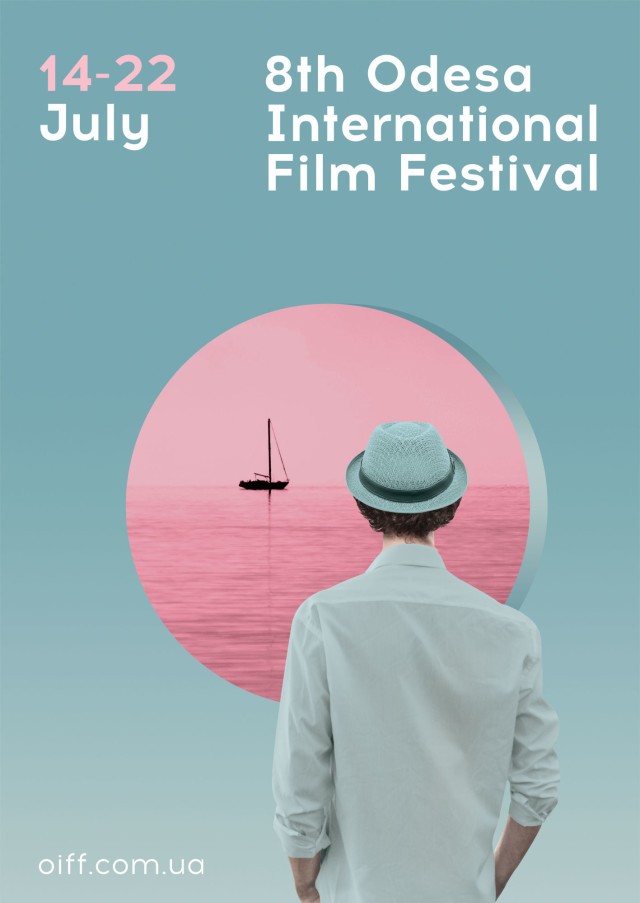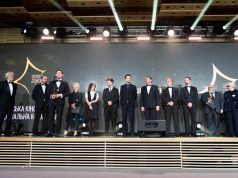Pretenders and Beyond the Snowstorm
By Yevgeniya Seleznyova
Day 2 of the festival came out to be somewhat more intense than the first: after the delightful and pleasant Day 1 program, today’s choices were in some ways challenging for viewers.
Pretenders by Vallo Toomla – just another dull European movie
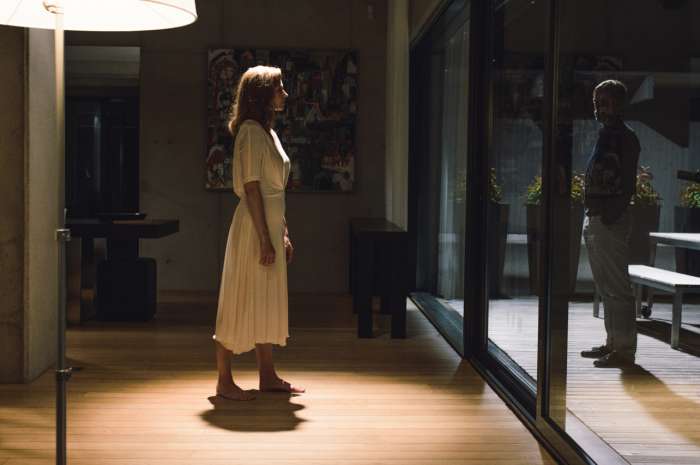
My International Contest screening for today was the Estonian-Lithuanian-Latvian Pretenders filmed by a “young and promising Estonian talent,” as the film annotation announces. This promise, however, turned out to be unfulfilled…
The main impression after the final credits: I’ve seen it all before. Pretenders pretend to be something we recognize as quality European film, but in fact, it is all very derivative. A piece from Tornatore, a bit of von Trier with his claustrophobics — and a very strong and overpowering scent of Angelina Jolie’s By the Sea (which I, personally, do not consider to be a masterpiece itself). Even the actor’s poses and outfits are reminiscent of that film at certain moments.
All characters are weak. They’re both bloodless and annoying, each having only one dominant trait, too obvious to be interesting. The female protagonist, Anna, acts like a 30-year-old prom queen with no signs of growing up. Seems that she might be fond of By the Sea along with the director, and plays a sort of “Jolie-from-the-block”.
Most of the dialogue feels unnatural. Falseness can be a creative tool when filming a story about pretending, but it shouldn’t pervade the entire picture. If the director’s aim was to tell a story about people being false — then a transformation should follow, dropping masks and uncovering true personalities. It didn’t happen. The characters were only capable, after all, of admitting that their relationship had reached a dead end — something the viewer had realized an hour ago.
The soundtrack is just annoying. Some good indie beats could have saved the film to an extent, but instead it featured a lot of old hackneyed classics, only adding to the general atmosphere of irritation.
At this point I feel like I should find something positive to say. The final twist was not bad, when something like character development made an appearance. Camera work raises no objections.
So, clearly Pretenders is not my cup of coffee. Judging by the number of awards the film has received, it has outwitted many — but not me.
Beyond the Snowstorm – trying to find where the shadows end
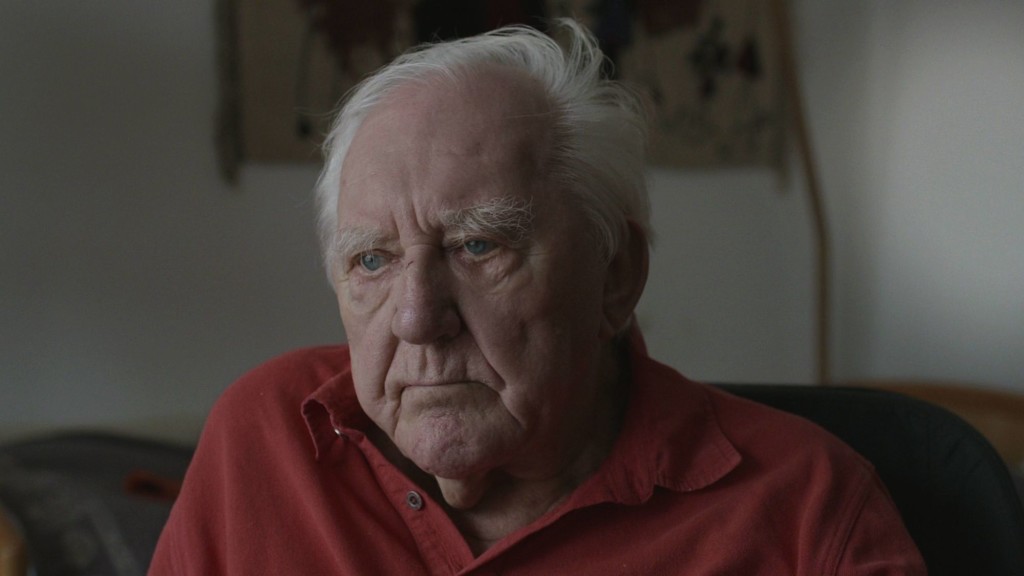
To tell the truth, this must have been the first documentary I’ve watched since 2011’s Pina. Beyond the Snowstorm had to compete for viewers with Tarantino’s Jackie Brown being screened next door. A woman sitting near me even asked, “Why didn’t I choose Tarantino instead…” She left about 20 minutes into the movie, together with a few more people, while I was completely absorbed by the picture.
The film was introduced by a couple of members of the team — editor Stephan Bechinger and director’s assistant Maxim Voitenko. Peter Levin, the director, couldn’t make it because of a new filming project.
The documentary follows an investigation triggered by the reminiscences of an old man who was part of the German troops sent to Mariupol during World War II. His grandson, now a movie maker, asks some questions about his grandfather’s past and his reflections on it. He is inspired to go to Ukraine, where he talks to people about their remembrances and impressions of the war.
It is a very deep, personal and touching journey, though sometimes feeling almost merciless toward an aged and sick man. It is a very important subject, too, especially for the people of Ukraine who’re now experiencing war once again. What is the takeaway here? Each soldier is an individual despite every army’s depersonalization. Every war concludes eventually, but does it ever come to an end inside the souls of those who were waging it?
After the final credits, many members of the audience stayed for a Q&A session with the filmmakers. Among other interesting details, such as what has since happened to the old man in the film, they mentioned that Peter Levin was on the verge of stopping the filming several times, as it was too difficult both for him and his grandfather. However, he realized the significance of the subject and found the courage to finish it. I feel thankful for his efforts. The war theme feels very personal to me — as, probably, to most Ukrainians — so understanding the human souls on both sides of the field can bring us closer to working out the differences.
One thing that really surprised me was the warmth with which the grandfather spoke about the beautiful country of Ukraine, as well as the openness of Ukrainians talking about him after seeing his photo. No signs of hostility, no reminders of past offences, just forgiveness and understanding that we’re all humans, not always in control our lives. I guess that’s what makes this documentary so important: it isn’t just searching for and finding answers — it is a film that gives me hope.
The Leading Role and Ugly
By Ulyana Dovgan
The second day of the 8th OIFF seems to have defined both the festival favorite — The Leading Role, directed by Serhiy Bukovsky — and the feature that received the greatest number of negative reviews — Ugly, directed by Juri Rechynsky (so much so, that the viewers requested for the Grand Prix Golden Duke voting forms to make a “zero” rating possible…)
The Leading Role
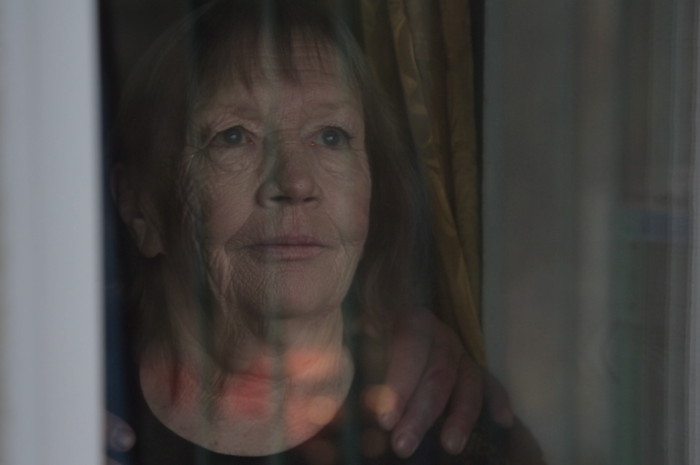
The Leading Role directed by Serhiy Bukovsky has become a favorite with the festival’s audiences. As a result, the cinema hall was crowded and nobody was ready to leave after the screening. The viewers fully shared the feelings of the protagonists and the filmmakers — probably because the picture was a breath of fresh air among other features full of drama.
The Leading Role is the winner of the first Ukrainian Film Award “The Golden Dziga” in the category of Best Documentary – Feature. The world premiere of the film took place at DOK.Leipzig 2016. At the 8th OIFF, The Leading Role is presented in both the National Competition Programs and the Documentary Competition.
The feature was filmed with the support of the Ukrainian State Film Agency and starred actress Nina Antonova — the mother of the director and the muse of Anatoliy Bukovsky, a very talented filmmaker of the Soviet period. The Leading Role offers a refreshing take on a personal story touching on themes of sacrifice and freedom. The film’s dialogue is filled with humor and memories of the triumphs that characterized the relationship between the mother and her son.
The most wonderful thing about the film was that the audience was compelled to interact with the characters on the screen. In one of the scenes, Antonova mentions that she has an Astrakhan fur coat, and in the next scene the director points out that she has a moth in her home. Antonova calmly replies: “That’s good. That means there is something to eat in the house.” And, suddenly, I hear a voice behind me: “Of course, there is. Your Astrakhan fur coat.”
In this film, Bukovsky did a great job portraying a half-forgotten existence with the kind of stolid, semi-humorous tone that we often see in the movies of Aki Kaurismaki — the filmmaker who most comes to mind here.
Ugly
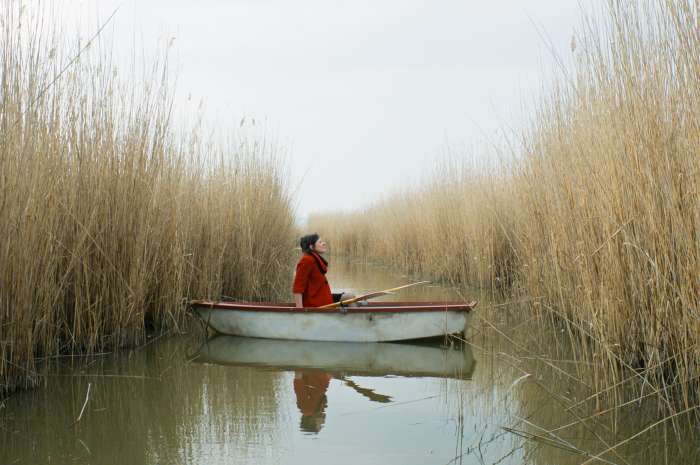
Ugly is the debut feature of Juri Rechynsky. The world premiere of the film took place at the International Film Festival Rotterdam (IFFR). At this year’s Odessa International Film Festival the feature is presented in both the International and the National Competitions.
The film begins with a frame of a bruised Hanna (Angela Gregovic) in a bath tub, crying from the cold of it. The next shot shows her at a hospital somewhere in Ukraine, with her partner Jura (Dmitriy Bogdan), after a car crash. This ugly and disturbing opening introduces the audience to the main characters of the film.
The stories of their families are shown in parallel: Hanna’s mother Martha (Maria Hofstatter) is in the early stages of Alzheimer’s, while her husband Josef (Raimund Wallisch) tries to come to terms with their new life in their ultra-white home in Vienna. In the context of her family, Hanna feels troubled and alone.
Jura has another problem: he is trying to make sense of his life. His morose existence is made clear in conversation with his mother (Larisa Rusnak) and grandfather (Valeriy Bassel) in which he tells them, “We’re just living corpses.”
What the audience gets is a rich and strange tale of relationships with serious communication problems, although it takes a tad too long to get to the point. The director takes two main characters and tosses them into a story that jumps between between Austria and Ukraine, by way of reanimation, pain attacks, sex scenes, and dementia. In the end, he shows to the viewers how the disparity between body and soul can hurt us, and how their fusion can make us whole again.




























